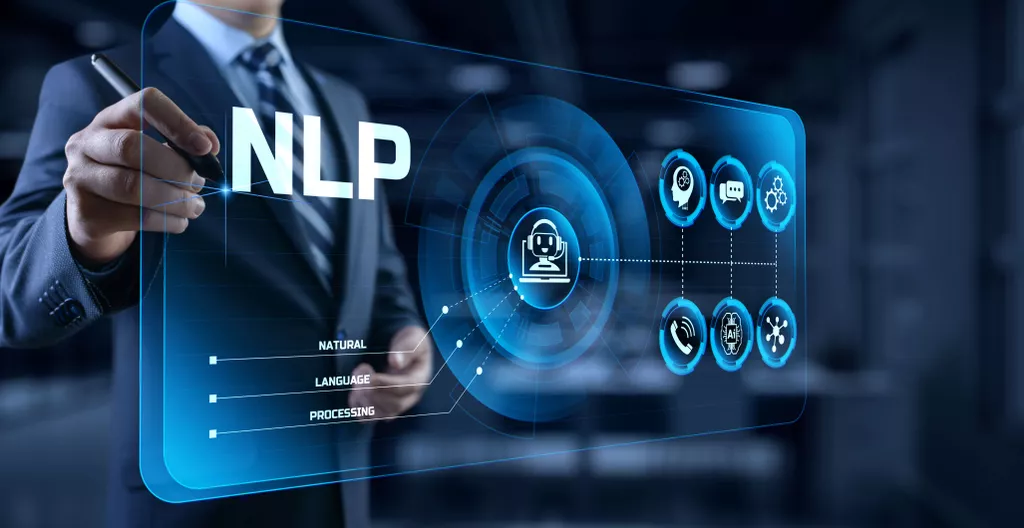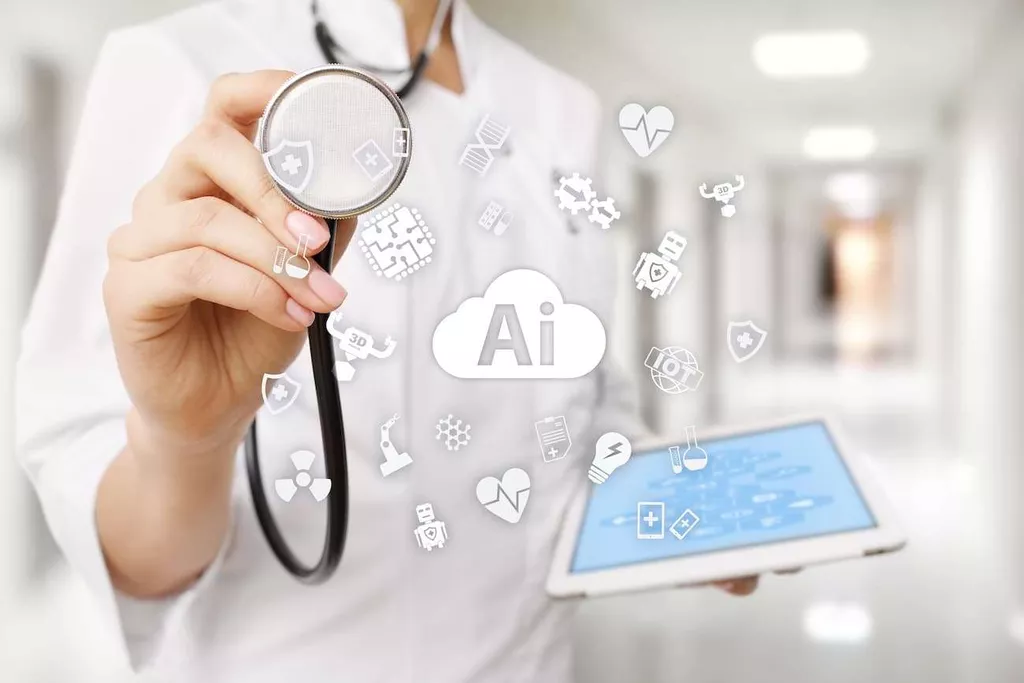They are conversationalists that run on the rules of machine learning and development with AI technology. Our healthcare system, sadly, isn’t built to provide everyone with decent human caregivers. And until that changes, it’d be nice to have robots that could help us stay healthy. If they can simulate caring about us at the same time — maybe even better than human doctors do — well, that’d still be a nice message to receive. The point of the empathy experiment wasn’t to show that ChatGPT could replace a physician or a nurse.
With the help of chatbots, you can select a doctor for a consultation via chat or video communication, save health data and share it with the selected specialist. Lower-level, repetitive tasks, aside from being tiresome, can take a good part of the day for any healthcare worker. A healthcare chatbot can help free you from this growing pressure without compromising on the quality of patient support. The AI-based health chatbot from Youper focuses on enhancing mental wellness.
For example, the Health Insurance Portability and Accountability Act (HIPAA) imposes strict requirements on how patient data can be collected, used, and shared. Chatbots that collect or store patient data must take these requirements into account to avoid violating HIPAA. Chatbots can be used on social media to help answer questions and make users feel more comfortable with their healthcare decision. They are ideal for answering questions that people have about insurance, prescriptions, and health-related matters.

Watson Assistant is the key to improving the customer experience with automated self-service answers and actions. Watson Assistant is there for your patients, helping provide basic medical advice or helping track health goals and recovery. Discover how Inbenta’s AI Chatbots are being used by healthcare businesses to achieve a delightful healthcare experience for all.
It has also improved security and compliance while boosting employee experience. By automating a burdensome, frustrating, and time-consuming process for patients, Max Healthcare created faster and more direct results. Patients were left with a positive experience, more often satisfied with the level of care received, and administrators were given time back into their day to focus on other issues at hand. The limitations of healthcare chatbots include limited ability to handle complex medical cases, inability to provide a physical examination, and potential privacy concerns.
While these can be not very accurate in some cases, the technology has shown to be critical in many situations. Chatbots have a great use for healthcare solutions in a number of micro-niches. They want a self-service option, and they want their interactions to be engaging and personal. The healthcare industry is no exception; patients have similar expectations of their healthcare provider as they do with other consumer sectors.
To conduct the test, a team of researchers from the University of California in San Diego lurked on r/AskDocs, a Reddit forum where registered, verified healthcare professionals answer people’s medical questions. They then fed the questions into the virtual maw of the bot ChatGPT, and had a separate group of healthcare experts conduct a blind evaluation of answers from both AI and MDs. On the opposite side of the coin, there are a few obstacles to consider when contemplating the development of healthcare chatbots. In addition to saving money, medical bots can offer faster access to healthcare services. According to a survey, 78% of people prefer using bots for medical services.
The level of conversation and rapport-building at this stage for the medical professional to convince the patient could well overwhelm the saving of time and effort at the initial stages. Despite the obvious pros of using healthcare chatbots, they also have major drawbacks. With regard to health concerns, individuals often have a plethora of questions, both minor and major, that need immediate clarification. A healthcare chatbot can act as a personal health specialist, offering assistance beyond just answering basic questions. This chatbot template collects reviews from patients after they have availed your healthcare services. Here are different types of healthcare chatbots, along with their templates.
As an alternative, the chatbot can check with each pharmacy to verify if the prescription has been filled, and then it can send an alert when the medication is prepared for pickup or delivery. To respond to general inquiries from customers, several healthcare service providers are transforming FAQs by including an interactive healthcare chatbot. Chatbot algorithms are trained using extensive healthcare data, including disease symptoms, diagnosis, signs, and potential treatments. Public datasets are frequently used to train chatbots for the healthcare industry. Rising technological innovations and increased smartphone penetration are the major growth drivers, along with an accelerating literacy rate and increased access to the internet. Healthcare chatbots allow patients to monitor their treatment by actively interacting with the bot at any time, including monitoring indicators and maintaining an electronic medical record.
When using a chatbot, the user indicates complaints and then provides answers to the questions sequentially asked by the chatbot, specifying symptoms and information on their condition. Advanced medical bots are programmed so that each subsequent question depends on the answer to the previous one. Medical chatbots can lower costs by reducing unnecessary procedures, visits and hospitalizations, as well as reducing the workload on medical workers. According to a study by Juniper Research, AI-powered chatbots will save $3.6 billion in healthcare costs by 2022. You can build, test and launch your healthcare chatbot from scratch and enjoy up to 50 free conversations so you know your bot is actually engaging your patients.
Undoubtedly, chatbots have good efficiency to transform the healthcare industry. It will considerably boost proficiency, besides enhancing accuracy in detecting the symptoms, preventive care and feedback procedures. Chatbots in the healthcare industry automate all repetitive and lower-level tasks that a representative will do. The Chatbot also permits people to handle autonomous tasks, healthcare expertise is empowered to concentrate on complicated tasks and will take care of them more efficiently.

Bots can assess the availability of job postings, preferences, and qualifications to match them with opportunities. Based on the format of common questions and answers, HealthAI uses artificial intelligence to identify the most appropriate response for your patient in a matter of seconds. We provide iOS and Android application development services so that you can reach your target audience on any device.
They’re highly trained to detect one thing, like a tumor or sepsis, using specific test results as input. So the medical establishment is jumping on chatbots as a cheaper, more ubiquitous tool. Dozens of companies are working on applications, aiming for uses from diagnosing illnesses to helping with the slog of paperwork that has somehow become the responsibility of both doctors and patients alike.
Chatbots for healthcare allow patients to communicate with specialists using traditional methods, including phone calls, video calls, messages, and emails. By doing this, engagement is increased, and medical personnel have more time and opportunity to concentrate on patients who need it more.
The success of the solution made it operational in 5+ hospital chains in the US, along with a 60% growth in the real-time response rate of nurses. Healthcare customer service chatbots can increase corporate productivity without adding any additional costs or staff. Chatbots allow users to communicate with them via text, microphones, and cameras.
Chatbots must therefore be designed with security in mind, incorporating features such as encryption and authentication. Chatbots are able to process large amounts of patient information quickly and metadialog.com accurately. This helps to free up time for medical staff, who can then focus on more important tasks. In addition, chatbots can help to improve communication between patients and medical staff.
Google has built the best artificial intelligence yet for answering medical questions. The Med-PaLM AI can answer multiple-choice questions from medical licensing exams and common health queries on search engines with greater accuracy than any previous AI and almost as well as human doctors.